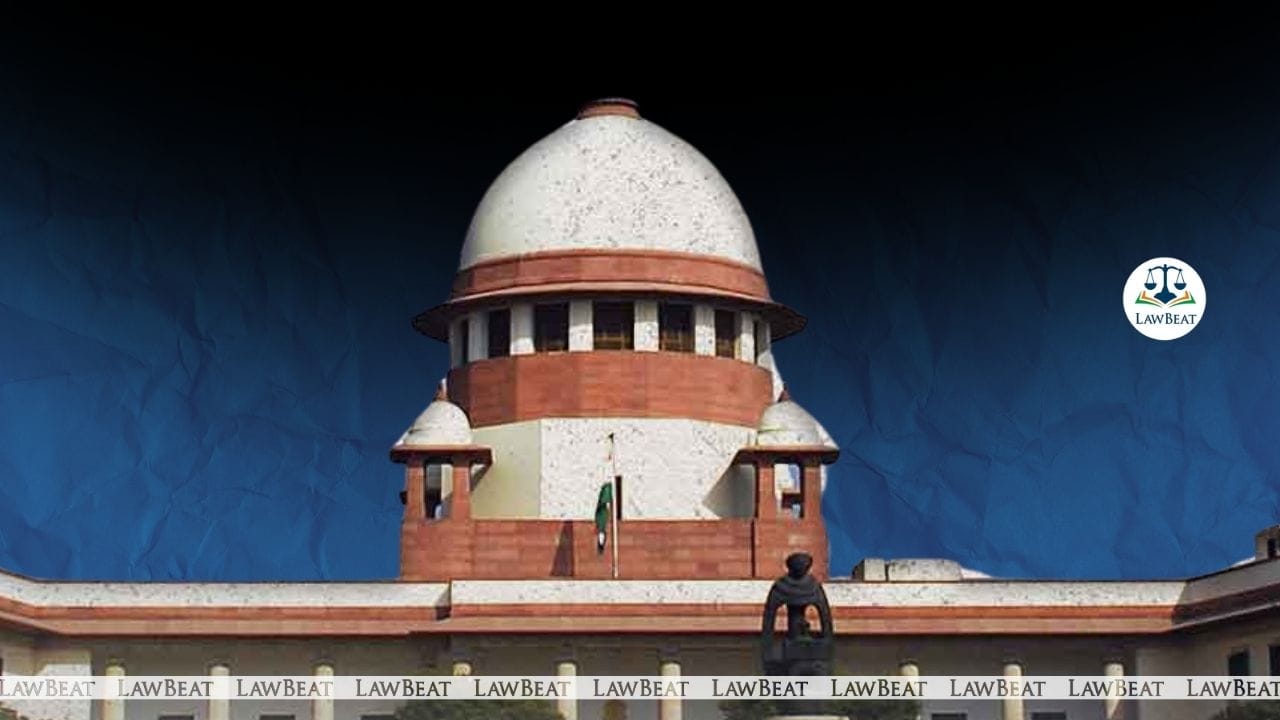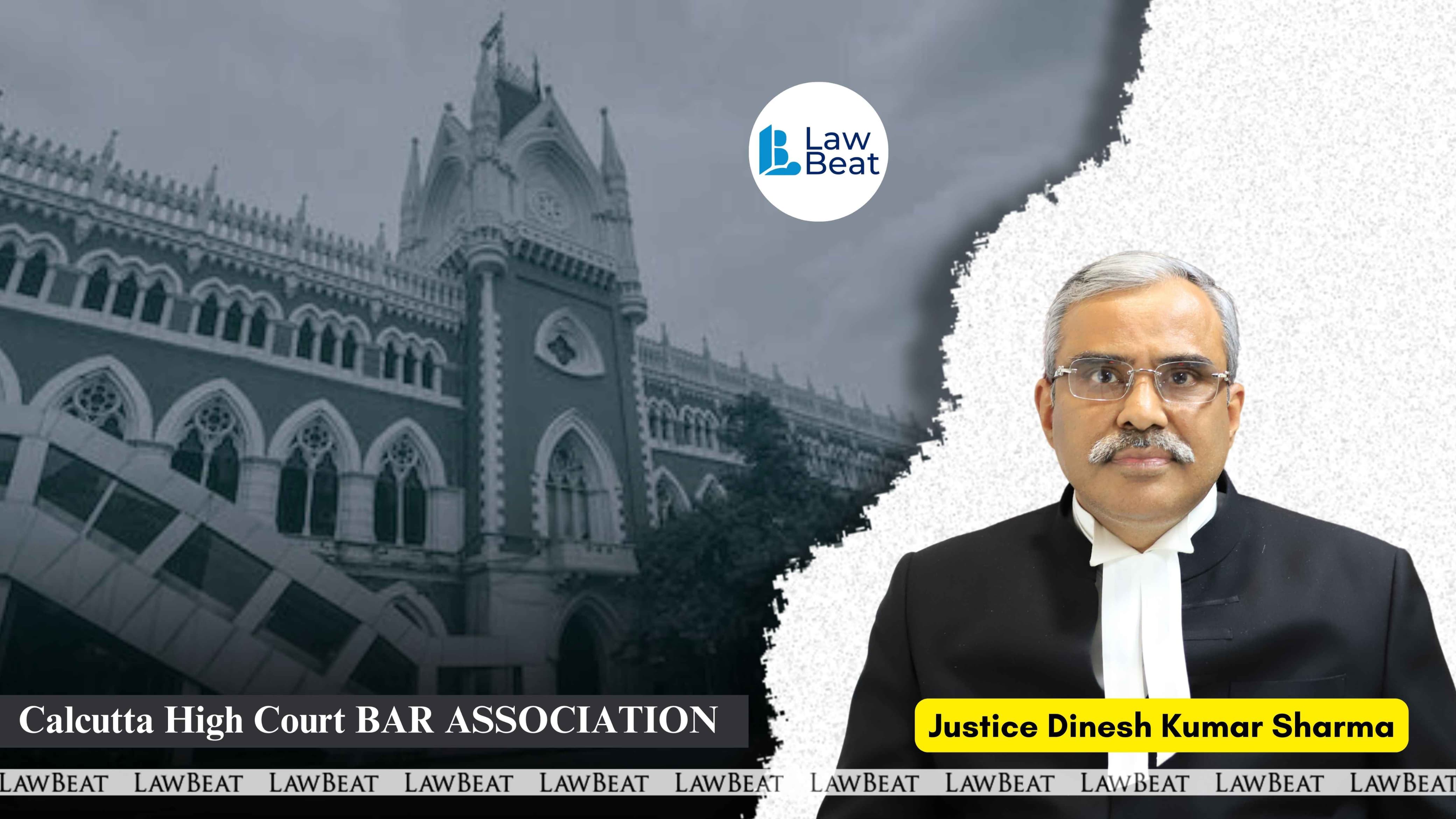SC Sets Aside Conviction, Death Penalty for Man in Wife-Daughter Murder Case; Orders Retrial
Read Time: 21 minutes
Synopsis
The Supreme Court said that courts must give due regard to principles and compliance with procedural rigour and not be swayed by the emotions that the offence may evoke
The Supreme Court recently set aside the conviction and sentence of death penalty awarded to a man for killing his wife and 12-year-old daughter in 2014, after finding non compliance with various basic requirements of a fairly conducted trial, in accordance with well-established prepositions of law.
A bench of Justices Vikram Nath, Sanjay Karol and Sandeep Mehta allowed the appeal filed by Sovaran Singh Prajapati against the Allahabad High Court's judgment of February 28, 2017, which confirmed the conviction and the capital punishment imposed by the Mainpuri trial court upon the appellant on March 1, 2017.
After noting the causal and lackadaisical manner in which the prosecution and the trial proceeded, the court remanded the matter back to the trial court for consideration afresh from the stage of framing of charges and delivering the judgment within a period of one year.
The bench emphasised all prosecutions and conclusions of either guilt or innocence must give due importance and primacy to the international obligations along with constitutional and statutory guarantees.
It found over a trial period of 2.3 years, the matter was posted on 74 occasions and surprisingly, for a variety of reasons including the majority thereof being non-production of witnesses, was adjourned on 52 occasions approximately. In a matter of this nature, it cannot be stressed enough that the examination of witnesses and smooth conduct of trial is essential which obviously, was given a go-by, the bench said.
The prosecution alleged the accused-appellant returned home on June 29-30, 2014, in an inebriated state with two bottles of liquor. He consumed liquor with his father. Thereafter, he demanded money from his wife for buying more liquor. Upon her refusal, he brutally assaulted the wife with brick, stone, and lathi, resulting in her death. He also killed his daughter by strangulation.
Senior advocate Rajiv Shakdher for the appellant pointed out numerous lapses, which went to the root of the matter, calling into question credibly, the justiciability of the conviction as well as the sentence imposed on the appellant.
In its judgment, the bench said a trial, of course, is a fact-finding exercise wherein both parties, i.e., the prosecution and defence, after investigation by the competent authorities, present their versions of events and the role and duty of the Court to determine the truth.
While undertaking such determination, the court is not only to look at the evidence at hand but also ensure that all consideration balances the demand for justice and the rights of the accused, it said.
It is also the duty of the court, in certain cases, to provide the person standing trial before it, with legal aid at the expense of the State, the bench said.
The bench said the case at hand raised questions of compliance with various basic requirements of a fairly conducted trial, in accordance with well-established prepositions of law.
"Fair and impartial administration of justice is a treasured right protected by various enactments of law including, first and foremost, the Constitution, which under Article 21 guarantees the Right to Fair Trial. In numerous pronouncements, this Court has underscored the same," the bench pointed out.
To secure a fair trial, is not a solitary responsibility. The Judge; the investigator; the investigating agency; and the counsel for either side, each have their own responsibility, it added.
"On numerous occasions, this court has highlighted the duty of a Trial Court to be an active participant to seek out the truth in a given set of circumstances ensuring that a balance is struck between the role and responsibility of prosecution as also the rights of the accused," the bench said.
In the present facts, the bench said, the court ought to have been the first one to observe and halt proceedings, given that counsel for the defence was absent on crucial occasions such as the examination-in-chief and cross-examination of PW-1; the statement of PW-2 also was recorded in the absence of counsel for the accused.
The court also noted no adequate opportunity was given to produce and examine defence witnesses; and the examination of the accused under Section 313 was improper, inadequate and incomplete.
"The course of action adopted by the Court was mechanical and in complete ignorance of the rights of the accused and the overarching purpose of a trial," the bench said.
The court said, it was true that the court had provided an opportunity for the defence to produce a witness but at the same time a condition was put that if on the said date the witness was not produced, the opportunity would be closed.
"This approach is in ignorance of the ground realities of production of a witness, and to the detriment of the accused. The Court cannot be said to have done its part," the bench said.
The court observed that in this case, the daily status of the trial court, revealed that that the court appointed both an Amicus Curiae and a legal aid counsel for the accused. There is no quarrel on that point. The same is permissible, it said.
However, "we are constrained to record that the appointment of the Amicus Curiae in a manner of this magnitude is in ignorance thereof for the case papers are silent as to the standing of the said person appointed to such a position. What was the role played by him? Was he appointed to assist the Court or was he appointed to aid the representation of the accused? Such matters should be clearly indicated to enable the Appellate Court to gain a full view of the matter, including being able to ascertain compliance of essential aspects such as continuous and qualitative legal assistance to the accused," the bench said.
Looking to the role played by the court when sitting in appellate and/or confirmation jurisdiction, the bench said, it has long been held that a court in first appellate jurisdiction, has to appreciate the evidence on record, after duly summoning the record of the courts below, and then arrive at its own finding, irrespective of the order under challenge before it being of conviction or acquittal.
"When particularly concerned with cases of Capital Punishment, naturally, since a person’s life hangs in the balance, the High Court’s responsibility is accordingly enhanced/heightened. It must carefully examine all relevant and material circumstances before upholding the conviction and confirming the sentence of death," the bench said.
In a criminal trial, the court pointed out, unless the law otherwise requires, the onus of proof never shifts. It is always on the prosecution. The job of the prosecution is to drive home the guilt of the accused beyond reasonable doubt, but at the same time, the prosecutor cannot forget that his first and foremost duty is, that of an officer of the court. The prosecuting agency carries the role, primarily, till the time the matter enters the court. They have a responsibility to examine all possible angles, collect all relevant evidence and then produce the same before the court for determination of guilt or lack thereof.
Dealing with the role of the prosecutor in the present case, the bench said, he seemed to have missed his duty as an officer of the Court.
Change of counsel; belated appointment of amicus curiae/defence counsel; closure of opportunity to cross-examine; recording of evidence in the absence of defence counsel are all factors that the prosecutor, in their solemn duty ought to have objected to and brought to the notice of the Court, as contravening the principle of a fair trial, the court said.
The bench pointed out that the Indian Criminal Justice System places the accused person at a comparative disadvantage which is more so exacerbated when the person is economically or socially less fortunate as in the present case. This Court, through various judicial pronouncements, has underscored and strengthened the rights of a person accused of committing a crime in order to ensure that the constitutional guarantee of Justice sees the light of the day, it said.
Having considered the rights and guarantees in favour of the accused, the court examined the record to find inadequate representation by counsel for the appellant. On various crucial dates, such as the committal of proceedings to the concerned trial court (compliance of Section 209 CrPC) and the examination-in-chief of the primary witness of the prosecution, i.e., PW-2, the appellant was not represented or adequately so, court noted.
"Opportunity for cross-examination also stoodclosed qua PW-1 which, in our view, cannot be countenanced. If a trial is conducted in such a manner, the argument of prejudice will be available to the accused. Presence of the accused’s counsel at the time of recording of the statement is necessary," the bench said.
The court also noted a frequent change in counsel as well as the matter being reserved for judgment on the very day that a new counsel for the accused was brought on record, raising a question on the assistance given to the appellant by such lawyers.
"Was his case effectively argued? Were all the possible gaps in the prosecution case sufficiently explored and exploited to his advantage? Were the prosecution witnesses ably cross-examined leading to the creation of a reasonable doubt, wherever possible? All these questions arise in our mind, considering the situation of the defence counsel. To us, the imposition of the death penalty here appears fraught with danger and should not be sustained," the bench said.
Court also found the appellant had been prejudiced by refusal of recall plea under Section 311 and the manner of recording of statement of accused under Section 313 of the CrPC.
In conclusion, the bench said, "we may observe the importance of compliance with the principles of law and procedural rigours, since now, due to such clear non compliance all parties to the dispute shall have to go through the process of trial once more and relive the horrific offence committed against the two deceased persons, namely, Smt Mamta and Kumari Sapna. Courts must give due regard to such aspects and not be swayed by the emotions that the offence may evoke."
Case Title: Sovaran Singh Prajapati Vs The State of Uttar Pradesh










